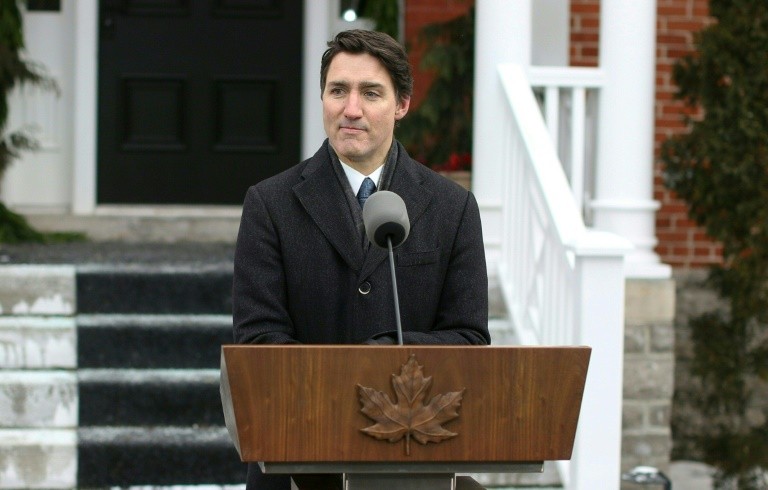
The race to be Canadian Prime Minister Justin Trudeau's successor kicked off on Tuesday, a day after he resigned amid a looming trade war with the United States and a divisive political climate at home.
The country's new leader is likely to face elections within weeks of taking over from Trudeau in March.
With the incumbent Liberal Party slumping badly in the polls, whoever wins the leadership contest could find themselves in opposition after the votes are counted, tasked with rebuilding the party.
US President-elect Donald Trump ally Elon Musk has thrown his support behind Trudeau's rival, Conservative leader Pierre Poilievre, for prime minister.
Few in the Liberal Party have yet officially announced plans to seek its leadership, but several likely candidates have already been touted to AFP and other media.
Here are the frontrunners:
Chrystia Freeland was deputy prime minister before she resigned in spectacular fashion in December, clashing with her boss over Trump's threats to impose 25-percent tariffs on Canadian imports.
The 56-year-old has held several senior cabinet posts in Trudeau's government since 2015. Polls show her as the top candidate to now replace him.
Pollster Nick Nanos described her to iPolitics as having "the greatest appeal" in the wake of her resignation, which "actually resulted in people having positive impressions of her."
Despite her many accomplishments, however, "she's not an effective political communicator," analyst Tim Powers told AFP.
Close behind in the rankings is Mark Carney, 59, a former governor of the Bank of Canada and the Bank of England who was named special economic advisor to Trudeau in September.
He said in a statement this week he has received broad support for his candidacy from people "who want us to move forward with positive change and a winning economic plan."
However, he has no political experience, and according to Powers, "learning on the job in three to four months is a big ask."
Carney has "superior intelligence and a policy mind," but his bona fides could disadvantage him in the current "anti-elite and anti-establishment" political climate, Powers added.
A childhood friend of Trudeau, Dominic LeBlanc, 57, has been a close political ally of the prime minister.
He was recently put in charge of leading negotiations with the United States, having twice visited Trump at his Mar-a-Lago estate in Florida for talks to try to avert a Canada-US trade war.
LeBlanc has held several senior cabinet posts, including his current role as finance minister, and public broadcaster CBC said he has strong support within the party.
However, "being so close to Justin Trudeau" could be a drag on his candidacy at a time when the electorate is demanding change, said Powers.
Foreign Minister Melanie Joly, 45, was profiled in the New York Times as a likely successor to Trudeau.
She was tasked with some of Canada's most difficult diplomatic missions, including mending strained relations with China and India -- following accusations of political interference and the assassination of a Canadian Sikh, respectively.
Her team told AFP they have received "a lot of calls" from people interested in her running for the leadership of the party.
Christy Clark, 59, a former premier of British Columbia, was in October among the first to publicly express interest in the federal top job.
She is a "wild card" in the race, said Powers, noting also that she was "exceptional" at interacting with people on a grassroots level, and was "not burdened" by Trudeau's record.
"There's an opportunity for her in being an outsider," he told AFP.
Transport Minister Anita Anand, 58, is a former scholar who taught at Yale and other major universities.
She was first elected to parliament in 2019 and tasked with leading efforts to secure vaccines, masks and rapid tests for Canadians during the Covid-19 pandemic. As defense minister, she brought in reforms to address sexual misconduct in the military.
A 2022 Macleans article described her as an "obvious possible leadership contender."








